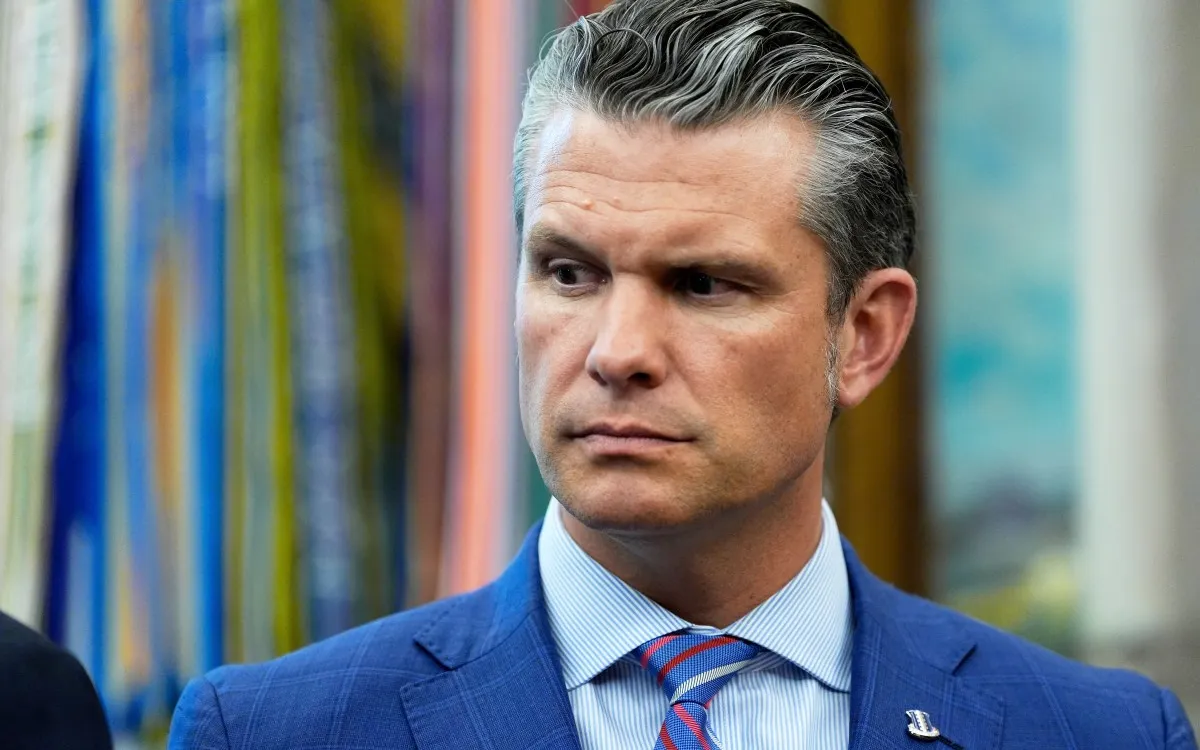
Three current Pentagon officials have expressed strong opposition to a controversial new policy introduced by the Department of War, which aims to significantly restrict press freedom. Under the recently implemented guidelines, the Department of War has declared that reporters will no longer be allowed to gather any information that has not received prior approval for release. Furthermore, journalists who fail to adhere to these regulations risk having their press credentials revoked.
The new policy is outlined in a comprehensive 17-page document that details the stringent requirements for journalists wishing to report from the Pentagon. According to these guidelines, reporters must sign agreements that limit their movement within the building and explicitly state that they will not obtain or possess any unauthorized materials. The department's memorandum claims, “DoW remains committed to transparency to promote accountability and public trust,” a statement that many experts and current officials have criticized as hypocritical.
Experts and insiders have labeled the new rules an "egregious assault on the freedom of the press." One defense official, who spoke to The Intercept on the condition of anonymity, referred to the policy as a “mockery of American ideals.” They further compared it to press regulations seen in some of the world's most repressive regimes, emphasizing that the desire for editorial control over the press is indicative of authoritarianism rather than democracy. “The idea they want editorial control over the press is something I expect from a banana republic, not the United States,” the official stated.
National Press Club President Mike Balsamo strongly condemned the policy, stating, “This is a direct assault on independent journalism at the very place where independent scrutiny matters most: the U.S. military.” He emphasized that if military news must first be approved by the government, it undermines the core principles of independent reporting, effectively limiting the public's access to information.
In a post on X.com last Friday, Secretary of War Pete Hegseth defended the new policy, asserting that “the press is no longer allowed to roam the halls of a secure facility.” He clarified that reporters must “wear a badge and follow the rules — or go home.” In response to inquiries from The Intercept, chief War Department spokesman Sean Parnell referred to the regulations as "basic, common-sense guidelines" aimed at protecting sensitive information, national security, and the safety of Pentagon personnel.
However, critics argue that these measures constitute a form of propaganda rather than actual journalism. Seth Stern, the director of advocacy at the Freedom of the Press Foundation, asserted that the government cannot legally require journalists to compromise their right to investigate in exchange for access. He described the policy as a “prior restraint on publication,” a serious violation of the First Amendment rights. He referenced the landmark Pentagon Papers case, which established that the government cannot prohibit journalists from publishing information under the guise of national security.
Amid these developments, concerns have been raised regarding self-censorship among reporters who may feel pressured to comply with the new rules in order to maintain favor with the War Department. One official expressed worry that some journalists may become complacent, stating, “Some of these so-called journalists are a joke.” Balsamo further noted that this crackdown on the media comes at a time when independent coverage of military and national security issues is more crucial than ever.
The Pentagon has also ceased regular press briefings by the press secretary or deputy, opting instead to distribute propaganda through officials like Hegseth and Parnell. Responses to inquiries have become increasingly dismissive, with press secretary Kingsley Wilson frequently replying, “Nothing for you on that.”
This press policy coincides with a wider trend of political correctness and censorship within the military, particularly following recent controversies surrounding conservative figures. The Trump administration, in particular, has been accused of waging a war on free speech, as evidenced by President Trump’s series of defamation lawsuits against major news outlets and the recent suspension of a late-night talk show host due to controversial remarks.
Stern highlighted a concerning pattern in which the government frequently invokes vague national security claims to shield itself from scrutiny. He noted, “Perhaps there are so many embarrassing documents at this point that it’s too difficult to keep finding bogus reasons to keep each of them secret.” This growing trend raises alarms about the implications for transparency and accountability within the U.S. government.
The new Pentagon press policy has ignited a fierce debate over the essential role of journalism in a democratic society. As officials and experts continue to voice their concerns, the need for independent journalism at the Pentagon and beyond remains paramount. The public must remain vigilant in advocating for press freedom and holding government entities accountable for their actions.